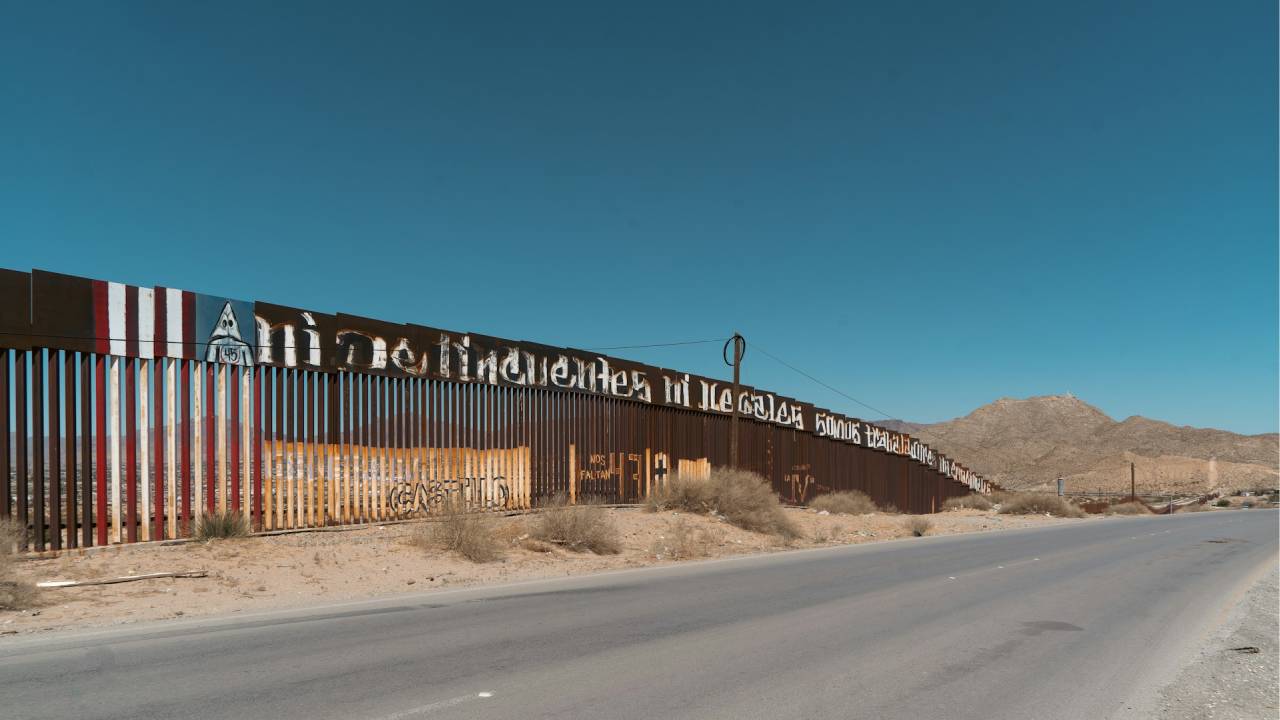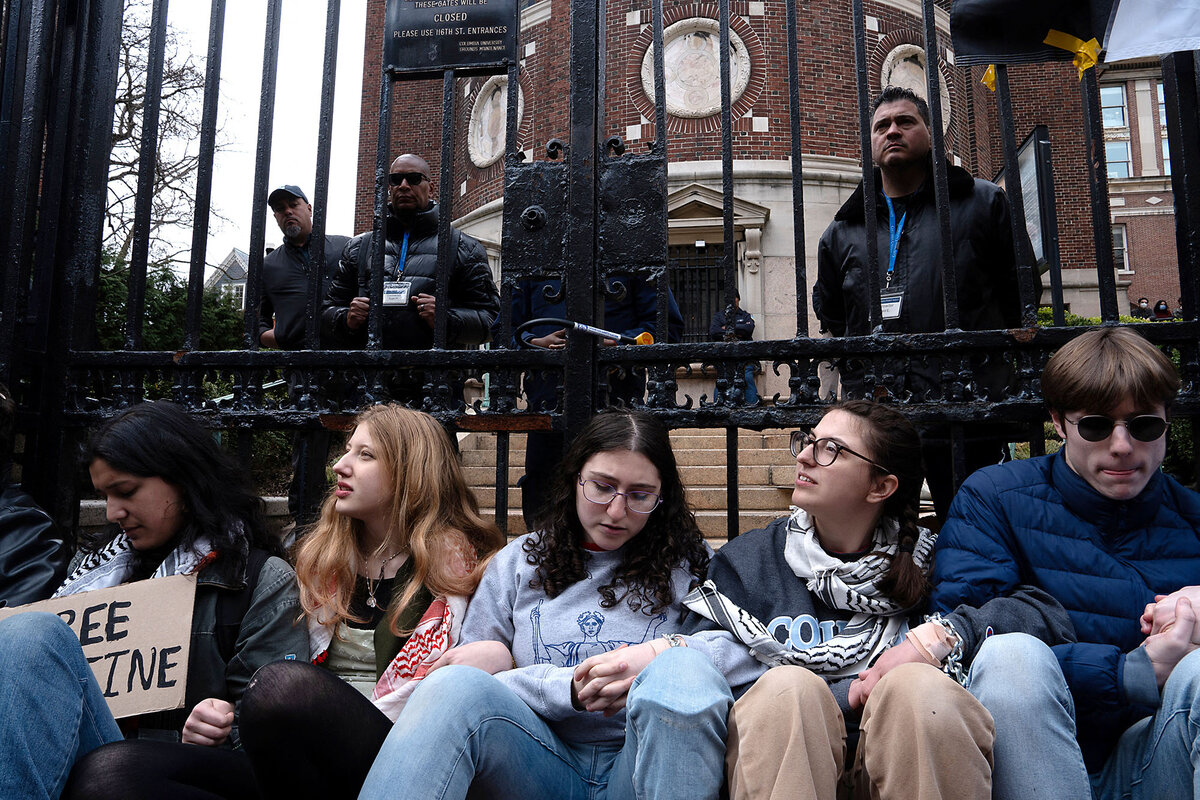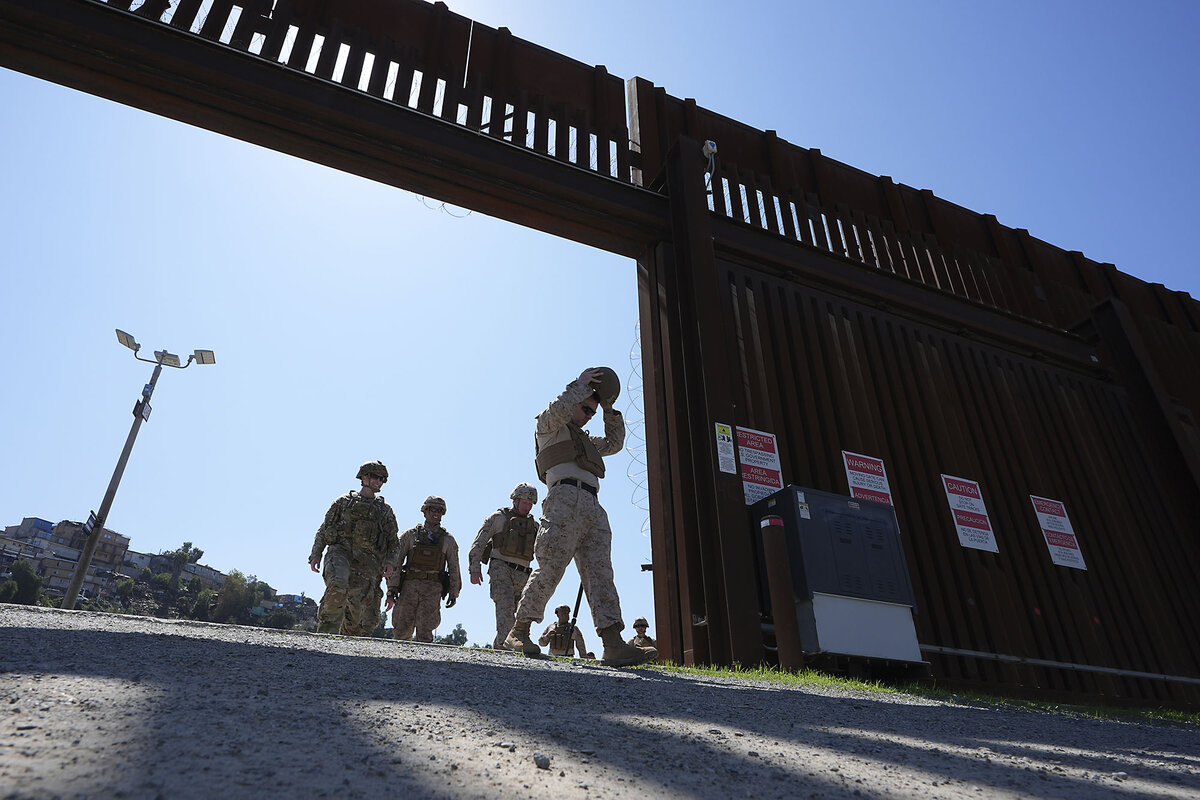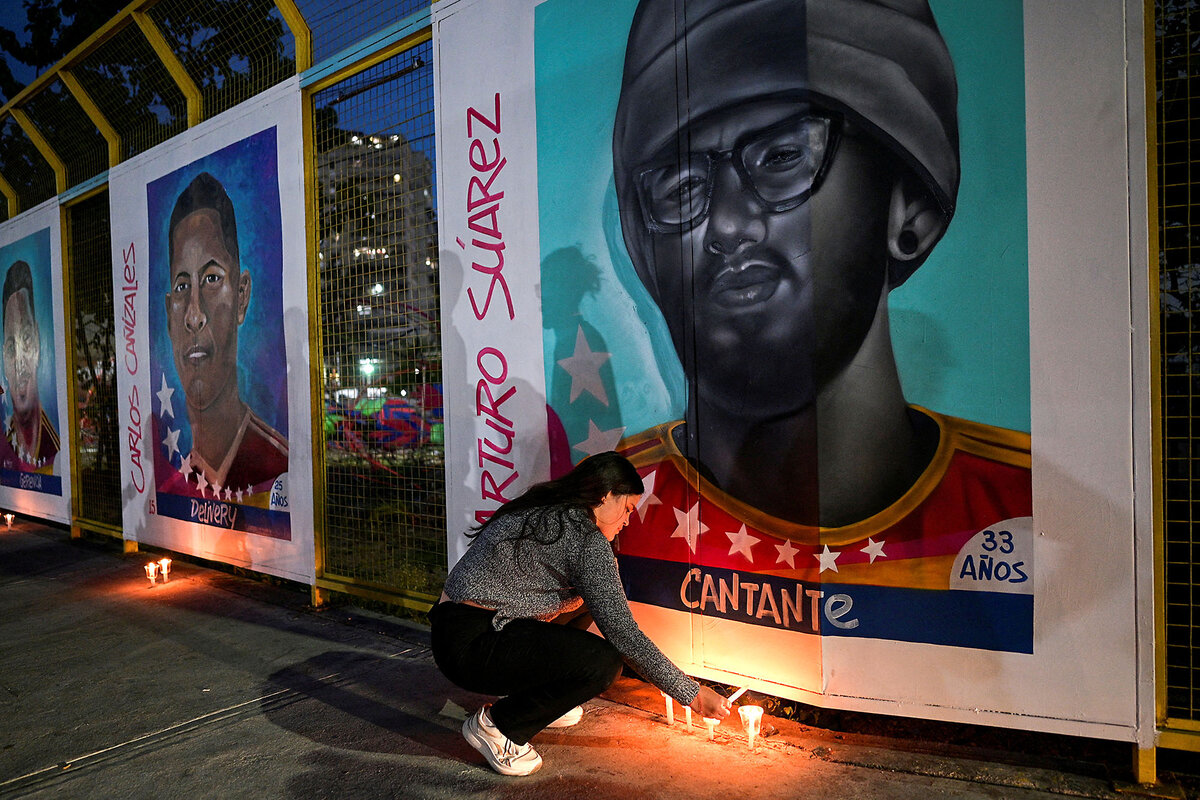World
Trump’s Border Plan: Could the Insurrection Act Change Life at the U.S.-Mexico Line?
As families, workers, and dreamers navigate life along the U.S.-Mexico border, a centuries-old law is stirring fresh debate. President Donald Trump’s recent moves have thrust the Insurrection Act of 1807 into the spotlight, raising questions about its potential impact on everyday Americans and border communities.

April 10, 2025 – As families, workers, and dreamers navigate life along the U.S.-Mexico border, a centuries-old law is stirring fresh debate. President Donald Trump’s recent moves have thrust the Insurrection Act of 1807 into the spotlight, raising questions about its potential impact on everyday Americans and border communities. Signed on Inauguration Day, Trump’s executive order declared a national emergency at the southern border, setting the stage for a dramatic escalation in military involvement. But what does this mean for the people who call this region home?
The order tasks Defense Secretary Pete Hegseth and Homeland Security Secretary Kristi Noem with delivering a report by April 20. This report will assess the border’s current state and decide whether invoking the Insurrection Act—a law untouched since the 1992 Los Angeles riots—is necessary to “secure operational control.” For border residents like Maria Gonzalez, a single mother in El Paso, the uncertainty is palpable. “We just want to live our lives,” she says. “More troops? It feels like we’re caught in someone else’s fight.”
A Law From Another Era
First enacted in 1807, the Insurrection Act empowers the president to deploy U.S. military forces or federalize the National Guard to quell domestic unrest or enforce laws. Historically, it’s been a rare tool—think Abraham Lincoln during the Civil War or Dwight Eisenhower enforcing desegregation in Little Rock. Today, Trump’s administration is eyeing it as a way to turbocharge his promise of mass deportations, a cornerstone of his campaign that resonated with millions of voters.
But before the military can roll in, there’s a catch: Trump must issue a proclamation ordering any “insurgents” or lawbreakers to disperse peacefully within a set timeframe. Only then can troops legally step in. Legal experts like Professor Sarah Kline at Georgetown University warn of the stakes. “This isn’t just about policy—it’s about power,” she says. “Handing the military domestic authority could shift how we live, especially near the border.”
Border Communities Brace for Change
For decades, the U.S.-Mexico border has been a bustling crossroads of cultures, commerce, and dreams. Cities like San Diego and Brownsville thrive on this exchange, but Trump’s hardline stance—already backed by military deployments—has locals on edge. Juan Morales, a small business owner in Laredo, fears the ripple effects. “Troops in the streets? That’s not the America I know,” he says. “It could scare off customers, tourists, even my workers.”
Trump’s team argues the move is essential to curb illegal crossings, pointing to the thousands of troops already stationed at the border since January. Yet, recent data shows crossings at their lowest in years, thanks to Biden-era asylum restrictions. Critics question if this is a solution in search of a problem—or a political flex ahead of the 2026 midterms.
What’s Next?
As the April 20 deadline looms, speculation is swirling. Will the report greenlight the Insurrection Act, unleashing soldiers into American neighborhoods? Or will it recommend a lighter touch? For now, the White House remains tight-lipped, leaving border families, activists, and lawmakers in suspense.
Advocates like Elena Rivera, an immigration lawyer in Tucson, are mobilizing. “This isn’t just about borders—it’s about our rights,” she says. “We’re ready to fight in court if it comes to that.” Meanwhile, Trump’s supporters cheer the prospect of a fortified frontier, seeing it as a fulfillment of his “America First” vision.
With just 10 days until the report drops, the nation watches—and waits. For those living in the shadow of the border wall, the stakes couldn’t be higher. Will the Insurrection Act of 1807 reshape their lives, or will cooler heads prevail? Only time will tell.
World
Beloved Actor Nicky Katt, Star of ‘Dazed and Confused’ and ‘Boston Public,’ Passes Away at 54
Hollywood mourns the loss of Nicky Katt, a talented character actor whose memorable performances in Dazed and Confused, Boston Public, and Boiler Room left an indelible mark on film and television. Katt passed away at the age of 54, as confirmed by his attorney, John Sloss of Sloss Law, on April 12, 2025. While no […]

Hollywood mourns the loss of Nicky Katt, a talented character actor whose memorable performances in Dazed and Confused, Boston Public, and Boiler Room left an indelible mark on film and television. Katt passed away at the age of 54, as confirmed by his attorney, John Sloss of Sloss Law, on April 12, 2025. While no cause of death has been shared, fans and colleagues are reflecting on the legacy of an actor known for his gritty, captivating roles.
A Career Defined by Versatility
Born on May 11, 1970, in South Dakota, Nicky Katt began acting as a child, but it was his role as the tough-talking Clint Bruno in Richard Linklater’s 1993 cult classic Dazed and Confused that skyrocketed him to fame. Playing a high school bully who clashed with Adam Goldberg’s character in a memorable fight scene, Katt brought raw energy to the coming-of-age comedy, sharing the screen with future stars like Matthew McConaughey and Ben Affleck.
Katt’s ability to embody complex characters shone in Boston Public, where he portrayed Harry Senate, an unconventional geology teacher who connected with troubled students in “the dungeon” classroom. From 2000 to 2002, his performance over three seasons earned praise for its depth and authenticity, making Senate a fan favorite in David E. Kelley’s acclaimed drama.
His film career was equally dynamic, with standout roles in Boiler Room (2000) as stockbroker Greg Weinstein and Steven Soderbergh’s Full Frontal (2002), where he played an actor portraying Adolf Hitler in a fictional play, The Sound and the Fuhrer. Katt’s collaboration with Soderbergh showcased his range, acting alongside A-listers like Julia Roberts and Brad Pitt. Other notable credits include Sin City, The Dark Knight, and School of Rock, cementing his reputation as a go-to actor for edgy, memorable supporting roles.
Nicky Katt: The Legacy That Resonates
Nicky Katt’s work wasn’t just about tough-guy personas; he brought humor and humanity to every project. In a 2002 Los Angeles Times interview, Soderbergh praised Katt’s nuanced performance in Full Frontal, noting his ability to tackle abstract, challenging roles with finesse. Whether he was a villain, a teacher, or a hitman, Katt had a knack for stealing scenes while staying true to the story.
Fans have taken to social media to share their grief and admiration, with many calling him a “true character actor” whose presence elevated every project. From his early days in Gremlins and CHiPs to his final role in the 2018 series Casual, Katt’s career spanned four decades, leaving behind a rich tapestry of performances that continue to inspire.
Honoring Nicky Katt’s Memory
As the entertainment world processes this loss, Nicky Katt’s contributions to film and TV remain a testament to his talent and passion. His ability to breathe life into diverse characters ensured he was never just another face on screen—he was unforgettable.
Our thoughts are with Katt’s family, friends, and fans during this difficult time.
World
Trump’s Policies Slash Migrant Crossings in Darien Gap by 99%
Migrant crossings through the once-notorious Darien Gap have dropped by a staggering 99% since US President Donald Trump returned to office and enacted his sweeping immigration crackdown, reported the New York Post.
Migrant crossings through the once-notorious Darien Gap have dropped by a staggering 99% since US President Donald Trump returned to office and enacted his sweeping immigration crackdown, reported the New York Post.
Only 408 migrants were recorded traversing the perilous jungle route in February, down sharply from the 37,166 who made the journey during the same month in 2024 under President Joe Biden, according to Department of Homeland Security (DHS) data.
The Darien Gap, a rugged 70-mile stretch of jungle between Colombia and Panama, had become a heavily trafficked corridor for migrants from around the world, especially during Biden’s term.
But since Trump’s inauguration, photos show the river port of Lajas Blancas, previously overwhelmed by migrants, now eerily empty, its tents abandoned and its riverbanks quiet, according to the news agency Associated Press.
“Effectively, the border with Darien is closed,” Panamanian President José Raúl Mulino declared last month, vowing to shut down the route entirely. Mulino, a conservative ally of Trump, has been instrumental in sealing off the jungle crossing, which had once seen over 16,000 migrants a week in 2022, according to DHS estimates.
Aid groups such as the Red Cross and Doctors Without Borders have left the area and only a handful of stranded migrants remain, mostly from Venezuela, Angola and Nigeria. Among them is 33-year-old Hermanie Blanco, who arrived just days after Trump took office. “It’s deserted,” Blanco was quoted by AP. “Doctors Without Borders, the Red Cross — no one comes here anymore”, Blanco added.
The Biden administration had seen record-breaking crossings in the region, with over 500,000 migrants trekking through the Darien in 2023 alone, reported AP.
However, Trump’s return has brought a swift and dramatic reversal. His administration’s policies, including a near-total shutdown of asylum access at the US-Mexico border and aggressive deportation measures, have triggered what analysts are calling a “reverse flow” of migration.
Some, like Blanco, are now attempting to return to their home countries, traveling by boat along Panama’s Caribbean coast.
The US state department recently acknowledged Panama’s efforts, saying migration through the Darién region had dropped by 98%. In coordination with Trump’s border strategy, Latin American countries have also stepped up enforcement under pressure from Washington.
A sign at the Lajas Blancas camp now reads, “Darien is not a route, it’s a jungle,” in multiple languages, a stark warning to would-be migrants that the once-bustling path north is now effectively sealed.
World
To speed deportations, Trump revives rarely used laws
“It appears that the Trump administration is attempting to use all of the tools left in the toolbox to assist in deporting, excluding, and surveilling foreign nationals,” writes Julia Rose Kraut, author of “Threat of Dissent: A History of Ideological Exclusion and Deportation in the United States,” in an email.Immigrant advocates say the new demand has put themselves – and their clients – in a bind.“The executive gets a lot of deference, a lot of discretion, a lot of leeway, but it’s not endless,” says Amanda Frost, professor at the University of Virginia School of Law.
Why We Wrote This
From an 18th century wartime authority to a World War II-era registration law, President Donald Trump is relying on a wide range of legal powers already on the books. The laws have become prominent tools in his effort to rapidly achieve major changes, including a pledged mass deportation of unauthorized immigrants.
On Inauguration Day, the president signaled tougher enforcement of a rarely used immigrant registration system was coming.“Everybody should be concerned when the government says they don’t need to prove anything,” he says.
<!–[if IE 9]>
<!–[if IE 9]><![endif]–>

A matter of enforcing the “laws on the books”?
Some immigrants are already known to the government, such as if they’ve been issued work permits or other immigration documents. But those in the country without authorization, or here with a provisional status, could be “asked to incriminate” themselves on the new government form, he says.“The reason they’re using this authority is to gain more power to deport people purely for speech without proving they’re a threat,” says David Bier, director of immigration studies at the Cato Institute.
<!–[if IE 9]>
<!–[if IE 9]><![endif]–>

Some moves, like invoking the Alien Enemies Act of 1798, were foreshadowed on the campaign trail. Others, like plans to revive the immigrant registration requirement, were inked on Inauguration Day. The administration has notched one legislative victory on immigration so far – the Laken Riley Act, passed with bipartisan support. Otherwise, Mr. Trump has largely leaned on executive discretion to enforce laws used by presidents past.
Relying on a 1798 wartime authority
Ira Mehlman, media director at the Federation for American Immigration Reform, says the government should know the whereabouts of unauthorized immigrants. And those in the country illegally should be concerned that the law may be enforced against them, he says.Mr. Trump has invoked this wartime authority to detain and deport Venezuelan men his government says are members of Tren de Aragua, a gang that his administration has designated as a foreign terrorist organization.
In its first use of the act, the Trump administration began to deport Venezuelans to an El Salvador prison in mid-March. Some immigration experts believe the government is acting unlawfully. America is not at war with Venezuela or TdA, they say, and the administration has provided little evidence that individuals subject to removal under the act are members of TdA.“The media and the left and others are criticizing the Trump administration for doing what the federal government should do, which is enforce the laws on the books,” says Cooper Smith, director of communications and adviser to the Center for Homeland Security and Immigration at the America First Policy Institute.
Paola Paiva, sister of a Venezuelan singer whom the U.S. claimed was a member of the Tren de Aragua gang and sent to the Terrorism Confinement Center prison in El Salvador, lights candles in front of a mural depicting her brother, in Caracas, Venezuela, April 2, 2025.
Living in the United States without authorization is not a crime. But it is considered a civil violation, which can be penalized by deportation.Now the Trump administration says it will enforce the registration laws with civil and criminal consequences for noncompliance. Immigrants rights groups sued, but a federal judge on Thursday allowed the administration to proceed.
Using a foreign policy provision to threaten deportation
White House adviser Stephen Miller has defended the current use of the act – and the seemingly absolute powers of the executive branch to carry it out.In a partially redacted memo obtained by the AP, Secretary of State Marco Rubio said his determination was based on Mr. Khalil’s role in “antisemitic protests and disruptive activities, which fosters a hostile environment for Jewish students.” Immigrants have been subject to this registration requirement under the law since 1940, allowing for criminal prosecution if they fail. Another law from 1952 requires proof of registration to be carried “at all times.”
Foreigners here temporarily are also under scrutiny. In late March, Secretary Rubio estimated 300 or more visas had been canceled for students and visitors so far; reporting from Insight Higher Ed suggests the number is more than double. At least two foreign visa holders who came to U.S. campuses are fighting their attempted deportations.
At the same time, there are immigration-related crimes that the government can prosecute, such as entering or reentering the country illegally. The extent to which an administration prosecutes these crimes depends on its priorities. Mr. Trump is moving fast, but within his mandate, supporters say.
Courts will likely “engage pretty deeply with this expansive use of foreign policy powers and wartime powers,” given that the law is being invoked at a time of peace, says Denise Gilman, co-director of the Immigration Clinic at the University of Texas School of Law.“There’s nothing that says we have to provide you an opportunity to hide.”
Return to federal registration
“As attorneys, we can’t counsel people to be in noncompliance with the law,” adds Mr. Painter. “But we also have to protect our clients.”“President Trump has made a promise to the American people” to remove immigrants deemed threats to the country, Tom Homan, the country’s “border czar,” told Fox & Friends last month. “I don’t care what the judges think. I don’t care what the left thinks. We’re coming.”How far he can push that executive power in the courts remains to be seen. Detractors argue some of his actions are unconstitutional. The government contends that judges are overstepping their role by holding the White House back.
“It’s been tough for all of us to figure out exactly the right approach,” says Robert Painter, managing attorney at the Texas Immigration Law Council.
On April 7, the Supreme Court said deportations under the act can continue for now, but with access to due process for detainees. Soon after, federal judges in New York and Texas placed further limits on the deportation effort.Courts have given presidents broad discretion over immigration and national security matters, but presidents of both parties have still struggled to deport most of the unauthorized population. Critics, and some courts, have said that Mr. Trump is now going too far. Trump officials counter that they are simply enforcing the law. The latest example is a revived mandate that immigrants register with the government, which went into effect Friday.
In its hard-driving push to toughen immigration policy, the Trump administration has found an unusual ally: old and at times rarely enforced laws that can be used to further its goals.
<!–[if IE 9]>
<!–[if IE 9]><![endif]–>

“If you illegally invaded our country the only ‘process’ you are entitled to is deportation,” he wrote on X April 1. The March 8 arrest of prominent Columbia University protester Mahmoud Khalil has shed light on another rarely used provision of immigration law.

“The executive gets a lot of deference, a lot of discretion, a lot of leeway, but it’s not endless,” says Amanda Frost, professor at the University of Virginia School of Law.Courts have given presidents broad discretion over immigration and national security matters, but presidents of both parties have still struggled to deport most of the unauthorized population. Critics, and some courts, have said that Mr. Trump is now going too far. Trump officials counter that they are simply enforcing the law. The latest example is a revived mandate that immigrants register with the government, which went into effect Friday.White House adviser Stephen Miller has defended the current use of the act – and the seemingly absolute powers of the executive branch to carry it out.
Some immigrants are already known to the government, such as if they’ve been issued work permits or other immigration documents. But those in the country without authorization, or here with a provisional status, could be “asked to incriminate” themselves on the new government form, he says.
The Trump administration is attempting to deport Mr. Khalil, a green-card holder of Palestinian descent, under a 1990 update to the Immigration and Nationality Act. The provision can make legal residents eligible for deportation if the Secretary of State deems that their presence or activities in the U.S. would have “potentially serious adverse foreign policy consequences.”“It’s been tough for all of us to figure out exactly the right approach,” says Robert Painter, managing attorney at the Texas Immigration Law Council.Case in point: In 2018, the Supreme Court ultimately upheld a version of what’s known as Mr. Trump’s travel ban. But the justices assumed that a presidential authority used to suspend entry into the U.S. couldn’t “expressly override” other parts of immigration law. The current administration has reportedly been mulling a new travel ban.
However, the registration requirement has been infrequently enforced. After 9/11, the George W. Bush administration applied it to men from countries it deemed possible national-security threats. That program was eventually made redundant by other systems that gathered data on arrivals and departures.
A matter of enforcing the “laws on the books”?

Lawyers for Mr. Khalil are fighting his detention and possible deportation. An immigration judge in Louisiana, where he’s detained, asked the government to provide its evidence in support of deporting Mr. Khalil.Border Patrol agents and members of the military walk between two border walls during a news conference on joint operations involving the military and the Border Patrol, March 21, 2025, in San Diego.Student demonstrators chain themselves to the gates of St. Paul’s Chapel at Columbia University to denounce the arrest of Mahmoud Khalil in New York, April 2, 2025.
Some moves, like invoking the Alien Enemies Act of 1798, were foreshadowed on the campaign trail. Others, like plans to revive the immigrant registration requirement, were inked on Inauguration Day. The administration has notched one legislative victory on immigration so far – the Laken Riley Act, passed with bipartisan support. Otherwise, Mr. Trump has largely leaned on executive discretion to enforce laws used by presidents past.
Relying on a 1798 wartime authority
At the same time, there are immigration-related crimes that the government can prosecute, such as entering or reentering the country illegally. The extent to which an administration prosecutes these crimes depends on its priorities. Mr. Trump is moving fast, but within his mandate, supporters say.On April 7, the Supreme Court said deportations under the act can continue for now, but with access to due process for detainees. Soon after, federal judges in New York and Texas placed further limits on the deportation effort.
Paola Paiva, sister of a Venezuelan singer whom the U.S. claimed was a member of the Tren de Aragua gang and sent to the Terrorism Confinement Center prison in El Salvador, lights candles in front of a mural depicting her brother, in Caracas, Venezuela, April 2, 2025. “There’s nothing that says we have to provide you an opportunity to hide.”
One of his Jan. 20 executive orders directed the secretary of Homeland Security to inform “all previously unregistered aliens” about their obligation to register with the government. The administration announced the new rule would take effect April 11.
In a partially redacted memo obtained by the AP, Secretary of State Marco Rubio said his determination was based on Mr. Khalil’s role in “antisemitic protests and disruptive activities, which fosters a hostile environment for Jewish students.” Ira Mehlman, media director at the Federation for American Immigration Reform, says the government should know the whereabouts of unauthorized immigrants. And those in the country illegally should be concerned that the law may be enforced against them, he says.
Using a foreign policy provision to threaten deportation
Foreigners here temporarily are also under scrutiny. In late March, Secretary Rubio estimated 300 or more visas had been canceled for students and visitors so far; reporting from Insight Higher Ed suggests the number is more than double. At least two foreign visa holders who came to U.S. campuses are fighting their attempted deportations.President Donald Trump’s controversial immigration actions are possible partly because he is enforcing already existing, but rarely used, laws. Supporters see this strategy as common sense, while critics view it as pushing executive power too far.Living in the United States without authorization is not a crime. But it is considered a civil violation, which can be penalized by deportation.
Immigrant advocates say the new demand has put themselves – and their clients – in a bind.
In its hard-driving push to toughen immigration policy, the Trump administration has found an unusual ally: old and at times rarely enforced laws that can be used to further its goals.
How far he can push that executive power in the courts remains to be seen. Detractors argue some of his actions are unconstitutional. The government contends that judges are overstepping their role by holding the White House back.The March 8 arrest of prominent Columbia University protester Mahmoud Khalil has shed light on another rarely used provision of immigration law.
Return to federal registration
In its first use of the act, the Trump administration began to deport Venezuelans to an El Salvador prison in mid-March. Some immigration experts believe the government is acting unlawfully. America is not at war with Venezuela or TdA, they say, and the administration has provided little evidence that individuals subject to removal under the act are members of TdA.“As attorneys, we can’t counsel people to be in noncompliance with the law,” adds Mr. Painter. “But we also have to protect our clients.”The Alien Enemies Act of 1798 gives the president the power to deport individuals from the U.S. when the country is at war or an invasion is threatened by a “hostile nation.” The act had been invoked three times over the past two centuries – during the War of 1812, and during the two world wars.
Courts will likely “engage pretty deeply with this expansive use of foreign policy powers and wartime powers,” given that the law is being invoked at a time of peace, says Denise Gilman, co-director of the Immigration Clinic at the University of Texas School of Law.
“Everybody should be concerned when the government says they don’t need to prove anything,” he says.“It appears that the Trump administration is attempting to use all of the tools left in the toolbox to assist in deporting, excluding, and surveilling foreign nationals,” writes Julia Rose Kraut, author of “Threat of Dissent: A History of Ideological Exclusion and Deportation in the United States,” in an email.

“The media and the left and others are criticizing the Trump administration for doing what the federal government should do, which is enforce the laws on the books,” says Cooper Smith, director of communications and adviser to the Center for Homeland Security and Immigration at the America First Policy Institute.From an 18th century wartime authority to a World War II-era registration law, President Donald Trump is relying on a wide range of legal powers already on the books. The laws have become prominent tools in his effort to rapidly achieve major changes, including a pledged mass deportation of unauthorized immigrants.
Immigrants have been subject to this registration requirement under the law since 1940, allowing for criminal prosecution if they fail. Another law from 1952 requires proof of registration to be carried “at all times.”Mr. Trump has invoked this wartime authority to detain and deport Venezuelan men his government says are members of Tren de Aragua, a gang that his administration has designated as a foreign terrorist organization.
-

 india2 years ago
india2 years ago“Major Crash of Sukhoi Su-30 and Mirage 2000 Fighter Jets in Madhya Pradesh”
-

 Sports2 years ago
Sports2 years agoWFI meetings on April 16, elections likely to be discussed
-

 india1 year ago
india1 year agoPM Modi Meets Deve Gowda for Seat Sharing Talks
-

 india1 year ago
india1 year agoBengaluru: False threat to bomb Raj Bhavan
-

 india2 years ago
india2 years ago“AIMIM to Contest 50 Seats in Upcoming Telangana Assembly Elections”
-

 Entertainment1 year ago
Entertainment1 year agoAnant Ambani: Controversy at the Ambani Pre-Wedding Bash
-

 Entertainment2 years ago
Entertainment2 years agoRajinikanth is Moideen Bhai in ‘Lal Salaam’
-

 Videos2 years ago
Videos2 years agoBidar News : Press Meet Organized By Zilla Kannada Sahitya Parishad











